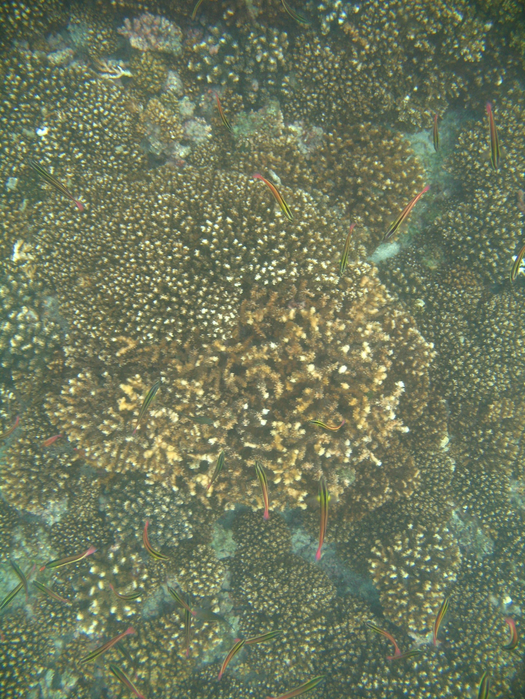Climate change-induced marine heat waves have been associated with mass mortality in some of the world’s most renowned coral reef systems.
 The thriving coral reefs off the coast of Isla San Pedrito, west of the Costa Rica mainland, in October 2006. Image Credit: Maria Marta Chavarria.
The thriving coral reefs off the coast of Isla San Pedrito, west of the Costa Rica mainland, in October 2006. Image Credit: Maria Marta Chavarria.
Scientists have found that the underlying cause of a catastrophic coral die-off episode was a severe weather event culminating in fast sea temperature reductions of up to 10 degrees.
When coupled with a widespread increase in harmful algal blooms, the reef collapse in Costa Rica’s Eastern Tropical Pacific in 2009 was very high.
The two variables resulted in coral cover decreasing by 20% to 100% at certain places, with recovery levels ranging greatly in the years since.
Scientists indicate that their observations demonstrate the impacts of upwellings, which cause water temperatures to plunge unexpectedly, are an important component to consider when trying to manage reef systems. The research was published in the journal PeerJ.
The study was carried out by an international group of researchers headed by the University of Plymouth in collaboration with partners such as Raising Coral and ACG. They encourage coral reef conservation in Costa Rica.
The researchers studied the variation in coral cover and the makeup of six marginal reefs concerning thermal highs and lows using 25 years of reef survey and sea surface temperature data.
Researchers could paint a thorough picture of local coral health conditions and quantify the number of coral population reductions. They could also outline the consequences which would lead to appropriate conservation and restoration measures.
The absence of overall coral regeneration in the decade since the first event, according to the study, shows that the region's ecosystem has hit a tipping point.
As a result, they offer a locally tailored—but globally scalable—solution to coral reef decreases that is based on resilience-based management and restoration while also taking into account coral health dynamics.
With proper management, such techniques could allow reefs to recover and continue providing biological and societal ecosystem services in the face of growing climatic risks.
The demise of coral reefs is very much linked to global warming and marine heatwaves. However, local and tailor-made conservation strategies might help to conserve the remaining reefs in our ocean. If we involve local communities and improve governance on how we manage waste water and other factors, that can decrease the extent and intensity of the harmful algal blooms.
Dr Robert Puschendorf, Lecturer, Conservation Biology, University of Plymouth
Dr Robert Puschendorf concludes, “The issues of global warming and extreme climate events are obviously something far bigger, but this study demonstrates the actions people can take in the meantime.”
Journal Reference:
Palmer, C., et al. (2022) Cold water and harmful algal blooms linked to coral reef collapse in the Eastern Tropical Pacific. PeerJ. doi.org/10.7717/peerj.14081.